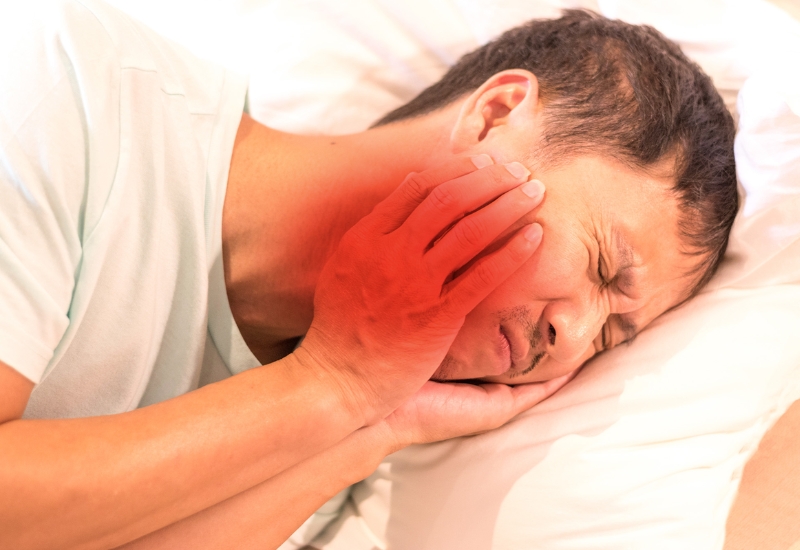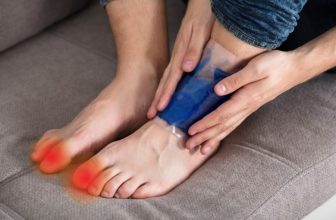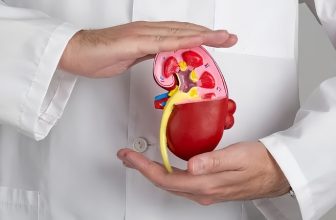Can Cure For TMJ, Bruxing and Tooth Grinding improve sleep quality?

What is The TMJ Solution?
The TMJ Solution is a comprehensive digital ebook that provides effective treatment for Temporomandibular Joint (TMJ) disorder. This natural solution is designed to alleviate pain and tension in the jaw, mouth, and chin areas, as well as symptoms like ear pain, tinnitus, headaches, a locked jaw, and teeth grinding.
This ebook presents a simple exercise routine to enhance energy levels and improve quality of life. By performing small movements for just a few seconds each day, you can effectively address TMJ symptoms.
The TMJ Solution provides detailed instructions for these movements, allowing you to perform them comfortably at home. This gentle program helps to release tension and reduce pain, contributing to improved physical and mental health.
Many users report significant improvements in sleep quality. These exercises are easy to perform, requiring minimal time each day, and they target various areas including the shoulders, neck, tongue, mouth, throat, body, and mind.

The Impact of TMJ, Bruxism, and Tooth Grinding on Sleep Quality
Before delving into potential cures, it’s important to fully understand how TMJ disorders, bruxism, and tooth grinding impact sleep.
Pain and Discomfort
The discomfort caused by TMJ disorders is one of the main factors disrupting sleep for individuals. Jaw pain, headaches, neck pain, and ear pain, which are often exacerbated by clenching or grinding the teeth, can prevent individuals from falling into a restful sleep. The pain may also cause frequent awakenings during the night, preventing the individual from reaching the deeper, restorative stages of sleep, such as REM (Rapid Eye Movement) sleep.
People with bruxism may not even be aware of the teeth grinding until they experience its side effects: sore jaws, headaches, or worn-down teeth. The constant stress on the jaw muscles leads to persistent discomfort, further preventing the relaxation needed for quality sleep.
Muscle Tension and Fatigue
Bruxism and TMJ disorders cause the jaw muscles to become tense, often leading to fatigue. The act of grinding teeth creates significant strain on the jaw, neck, and shoulder muscles, causing them to remain tight even after waking. This muscle tension can exacerbate feelings of fatigue and discomfort, which impedes the body’s ability to fully relax during sleep.
Chronic muscle tension leads to a vicious cycle—discomfort from TMJ and bruxism leads to poor sleep, which in turn increases stress and muscle tightness. This not only affects the quality of sleep but also prevents full recovery from daily wear and tear.
Sleep Fragmentation
Sleep fragmentation, or waking up multiple times during the night, is a significant issue for those with TMJ or bruxism. The grinding or clenching of teeth may not only wake a person from sleep but could also lead to micro-arousals throughout the night. These fragmented sleep cycles reduce the total amount of restorative sleep the body receives.
Moreover, the physical pain and discomfort associated with TMJ disorders can cause individuals to toss and turn, further disrupting their sleep patterns. This leads to reduced sleep efficiency, meaning that even though an individual may spend a long period in bed, they may not get the high-quality sleep their body needs.
Sleep Apnea Connection
There is growing evidence to suggest that TMJ disorders may contribute to or exacerbate sleep apnea. Sleep apnea is a condition where an individual’s airway becomes obstructed during sleep, causing them to stop breathing momentarily. This can lead to fragmented sleep, increased fatigue, and other health issues.
The connection between TMJ and sleep apnea lies in the positioning of the jaw. When the jaw is misaligned or under stress due to TMJ dysfunction, it can cause the airway to collapse during sleep. For individuals already at risk for sleep apnea, untreated TMJ disorders may worsen the frequency and severity of apnea events, further compromising sleep quality.

Christian Goodman’s TMJ Solution – An In-Depth Look
Christian Goodman’s TMJ Solution has emerged as a popular, non-invasive approach to treating TMJ disorders, bruxism, and tooth grinding. The program, designed as a comprehensive guide to solving TMJ issues, includes a series of exercises and techniques aimed at alleviating symptoms and improving jaw function.
The Philosophy Behind the TMJ Solution
The TMJ Solution program is based on the idea that TMJ disorders, bruxism, and tooth grinding can be effectively managed without invasive treatments. Christian Goodman emphasizes the importance of improving muscle strength, jaw alignment, and overall relaxation as key factors in reducing pain and improving sleep quality.
Unlike traditional approaches that often rely on mouthguards or medications, the TMJ Solution focuses on natural, at-home exercises. These exercises are designed to stretch and strengthen the jaw muscles, improve posture, and alleviate tension, leading to less frequent or intense grinding and clenching during sleep.
Exercises and Techniques in the TMJ Solution
The program includes a variety of exercises, ranging from jaw stretches to muscle strengthening routines. These exercises are meant to be performed regularly and are designed to gradually improve jaw function and reduce pain.
One central exercise in the program involves stretching the jaw muscles and holding specific positions to release tension. Other exercises are aimed at realigning the jaw and reducing strain on the temporomandibular joint.
Effectiveness and User Reviews
While there is no substantial scientific backing for the TMJ Solution, many individuals who have followed the program report positive results. Users have reported reduced jaw pain, fewer headaches, and significant improvement in sleep quality. By strengthening the muscles around the jaw and improving alignment, individuals have found that their symptoms are alleviated, leading to a more restful sleep.
However, critics argue that the TMJ Solution may not work for everyone, especially those with more severe TMJ issues. It’s important to approach the program with realistic expectations and to consult with a healthcare professional before starting any new treatment plan.

Can Cures for TMJ, Bruxism, and Tooth Grinding Improve Sleep Quality?
The answer to this question is a resounding yes. Managing and curing TMJ disorders, bruxism, and tooth grinding can significantly improve sleep quality. By addressing the root causes of these conditions—whether through medical interventions, therapeutic exercises, or stress management techniques—individuals can achieve better sleep and overall well-being.
Pain and Tension Relief
Reducing pain and muscle tension is one of the most effective ways to improve sleep quality. Oral appliances like mouthguards, physical therapy, and exercises that relax the jaw muscles can help individuals sleep more soundly without the discomfort that typically accompanies TMJ and bruxism.
Stress Reduction and Relaxation
Stress is both a cause and effect of TMJ and bruxism. By incorporating relaxation techniques such as meditation or yoga, individuals can break the cycle of stress, pain, and sleep disturbance. These techniques not only alleviate jaw tension but also promote an overall sense of calmness that is conducive to better sleep.
Improved Sleep Hygiene
Improving sleep hygiene, combined with addressing the symptoms of TMJ and bruxism, creates a perfect environment for restful sleep. By following good sleep practices and reducing the physical factors contributing to discomfort, individuals are likely to experience a more peaceful and restorative sleep.
Long-Term Results
While short-term solutions such as medications or mouthguards can provide immediate relief, long-term improvement in sleep quality comes from consistent management of TMJ and bruxism. A holistic approach that combines medical treatment, self-care techniques, and lifestyle changes will yield the best results for sustained improvements in sleep quality.
Conclusion: The Potential for Improved Sleep Quality
In conclusion, curing or managing TMJ, bruxism, and tooth grinding can significantly improve sleep quality. Addressing the underlying causes of these conditions—whether through medical treatments like mouthguards and physical therapy, self-help solutions like Christian Goodman’s TMJ Solution, or stress-reduction techniques—can help individuals enjoy more restful, uninterrupted sleep.

By combining various treatment methods and lifestyle changes, individuals can experience long-term relief from the pain and discomfort associated with these conditions, ultimately improving both their sleep and overall health.











